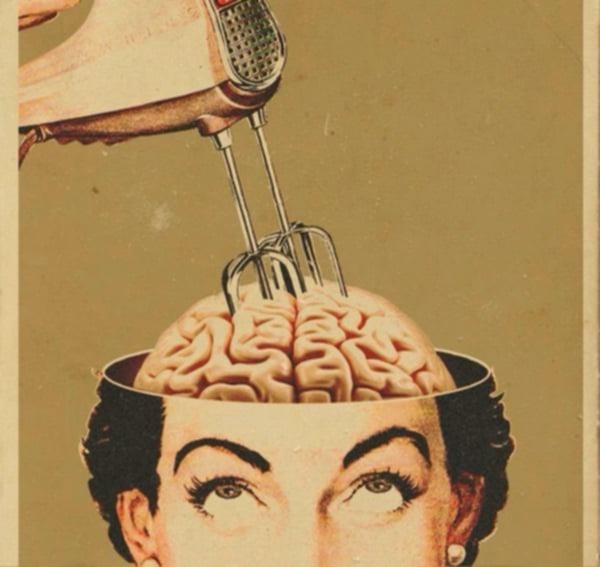Philosophy
Let each soul choose its own stage
Published
9 mois agoon
[simplicity-save-for-later]
In a world where authenticity seems a lost cause, we often cast aside those who bring both novelty and destruction. Yet, the chaotic destroyers are the greatest manufacturers, the ones who tear through the decaying layers of old skin, making room for the rebirth of innovation. Sometimes, they exchange their human skin for that of a lizard’s, shedding the expectations of beauty and conformity.
They appear to challenge God, to dishonor creation, yet they are the true adorers, the most genuine believers. They do not slay God, nor do they arrogantly claim superiority over all beings. Instead, they hold the Creator in reverence, recognizing His boundless greatness. Their destruction is not an act of defiance but of devotion, an acknowledgment that the old must fall for the new to rise.
These gentle spirits are often persecuted by souls already dead, blinded by arrogance, pretending to rule over the living while long deceased beneath the weight of their own egos and distractions. Many embrace existence under the veil of fear, fearing God without truly knowing Him, without striving to understand the complexity of His creation. If we are criminals for taking the lives of others, what judgment awaits us when we destroy our own? Is it not a decision of utter ingratitude? God is not fear. To simplify God is to commit a crime against the intricate structure and divine order of the universe.
When one chooses the arduous path, the universe conspires in their favor. Those who do not give their all will eventually lose it all. Fate’s hands embrace the infinite souls, while those who end their lives by their own hand are cursed, not by divine punishment, but by the weight of their own abandoned purpose. Respect those who embark on the journey of their personal legend, for history testifies that even the greatest rationality and strategy are undone by the unpredictable forces of life.
The conqueror of destiny often loses his kingdom in his pursuit of shadows. Strategy is applauded, logic admired, and results glorified. Oh, how we worship results, our existence consumed by them. We desire to witness the success of others through our own vision, yet we condemn them, both consciously and subconsciously, when they do not conform to the circus. Not all are clowns and magicians. Some prefer the raw honesty of the zoo. After all, it was the zoo that gave birth to the circus. Let each soul choose its own stage.
Yet, how often do we deny them that right? We build temples for the predictable, altars for the agreeable, and prisons for those who refuse to bow to the hollow customs of the masses. We celebrate the ones who entertain, but exile the ones who disturb. And yet, it is the disturbers, the agitators, the reckless dreamers who shape the world.
It is easy to love what is pleasing. It is harder to love what is raw, what is untamed, what does not fit neatly into the mold of comfort. But true creation is not birthed from comfort, it rises from fire, from the hands of those willing to embrace both pain and passion in equal measure. These souls, both feared and admired, do not seek destruction for destruction’s sake. They destroy because it is the only way to make space for something greater.
I do not love those who merely exist, drifting like leaves without purpose. I do not admire those who settle for the gray, for the lukewarm, for the indifferent. My respect is reserved for those who burn, for those who carve their own names into the fabric of time, even if it costs them everything.
I love the strong spirits of solitude that create not just to amuse.
I love those who propose pain, enjoy adversities, and marry suffering.
I love the souls that suffer just to make the future grow faster.
I love those who give the birds of passion, just like this little warmth means nothing.
I love those who make their own light and rhythm: gleaming people and all structures.
I love those whose dance is so contagious that they force their rhythm into existence.
I love those who change for their child, not for the circus.
I love those who follow their light beam, denying other colors.
I love those who cut through themselves just to collect pieces of other fabrics.
I love those who sacrifice themselves for others so they can live inside pride; my respect they gather.
I love those who die in their ideas, that they can’t live in any other shape.
I love the sparkle of desire, the passion and love in their crafting, I admire.
I love the creatures of curiosity that value knowledge over superiority.
I love the fighter, those who live for their sword and die when they see their goal.
I love the positive, the stupid who don’t care when they see their own end.
I love the protector, the ethical, and those who fight for their own.
I love the mouth of wisdom that talks only for birth and death.
I love the ones that create even if they are the greatest destructors.
I hate the smell of indifference, those who deny the past and curse the future.
I hate those who fall in the ocean and never add any nectar.
Written by Habib riden
Articles similaires
You may like
Philosophy
Rejecting reason: Understanding the spread of anti-intellectualism
Published
9 mois agoon
3 avril 2025 [simplicity-save-for-later]
Before reading this article, I would like to admit that I am not the most qualified person to discuss such a topic. My goal is simply to bring more attention to it and express my frustration with our current situation.
In an era where information is more accessible than ever, it is contradictory that knowledge is often dismissed, devalued or downright rejected. Anti-intellectualism, the rejection of structured reasoning and expertise in favor of emotion and oversimplified narratives, has become a widespread phenomenon.
The rise of anti-intellectualism
There was a time when knowledge was revered, when scholars and scientists were respected for their ability to understand and analyze the world around them. Today, however, a different culture dominates: anti-intellectualism. It’s not just ignorance, but downright the rejection of knowledge, the devaluation of expertise, and the celebration of emotion over reason. Unlike anti-scientism, which denies scientific methods and facts, anti-intellectualism extends beyond science, opposing any form of structured reasoning, including logic, philosophy and even politics.
We live in an era where the most popular opinion is the one that is the easiest to digest. Why struggle with complex subjects, when a simpler, more emotionally gratifying answer is available? Why engage with established scientific methods when one can cherry-pick isolated geological and historical studies to support a predetermined narrative? Some climate skeptics and conspiracy theorists do not reject knowledge entirely but rather operate within their own unconventional logical ways. They may refer to specific studies or historical anomalies to justify their stance, ignoring the bigger scheme of things. Why use science when you can just say, « It snowed today, so climate change isn’t real, » or acknowledge centuries of astronomical studies when you can simply say, « The horizon looks flat to me »?
Social media : a breeding ground for misinformation
The internet has also been nothing but a catalyst for this culture. What was supposed to be a facilitator of knowledge has instead given everyone a platform to share their uninformed opinions, as social media algorithms prioritize engagement over accuracy or reliability, therefore pushing emotionally charged content over researched facts. Echo chambers reinforce biased beliefs, making people more resistant to opposing viewpoints. And the rise of influencer culture means that rhetoric and demagoguery outweigh expertise, which is no longer a requisite for influence. If you can shout louder than your opponent or own them in an online argument, or appeal to people’s emotions, you become an authority.
This is the essence of anti-intellectualism, which is, in my opinion, a pressing issue. We are staying away from difficult topics, making it the reasonable choice to be uninterested. Those who do care about deep understanding are painted as out-of-touch, elitist, or simply overcomplicating things.
The spread of misinformation
And this is more common than we may think; this is how misinformation spreads. It’s why people blindly believe political figures who have no scientific qualifications whatsoever but speak with confidence. It’s how Trump came into power, and why, despite having no scientific background, gained credibility when denying climate change, because in the eyes of many, wealth is proof of his wits and intelligence.
Moving over, as science is evolving and as our understanding of the world deepens, the theories and evidence are becoming harder and harder for the average person to grasp. So why engage in the drudgery of mastering such topics, when rejecting them requires no effort? This explains why so many resist concepts that by now shouldn’t still need to be proven, like climate change, the round shape of Earth, or vaccines. Plus, I’m sure we’ve all seen a tweet like « God knew I’d be too powerful if I could do math ». Science demands effort to understand, and for many, it’s easier to dismiss it altogether than to do the work of comprehending it. This creates a population that’s easier to manipulate by rhetoric, propaganda, and corporate lies.
The manufacturing of anti-intellectualism
It’s no coincidence that climate change denial benefits fossil fuel companies, or that the rejection of evolution serves religious theocrats. Anti-intellectualism is often not just an accident; it’s manufactured, intentional. When science becomes inconvenient to major players, those players encourage the public to distrust it. For example, in the 20th century, tobacco companies funded research to create doubt about the link between smoking and lung cancer. They popularized the phrase « Doubt is our product » to keep people uncertain, delaying regulations and maximizing their profit. The sugar industry funded studies in the 1960s to shift blame from sugar to fats as the main cause of heart disease. This misinformation shaped dietary guidelines for decades and the effects are still prevalent in the modern world. Stalin’s Soviet Union persecuted scientists who contradicted political ideology. Trofim Lysenko, a non-scientist, was promoted to a high scientific position where, after the progress in genetics and evolutionary biology in the early days of the USSR, denied the existence of genes and promoted agricultural techniques that led to mass starvation and hindering the union’s scientific progress. Those who opposed him were executed or left destitute.
We like to think that we’re past such disasters, but modern anti-intellectualism begs to differ. Whether it’s the rejection of climate science, the resurgence of flat earth theories, or the belief that expertise is just another « opinion, » we are witnessing a multimodal assault on reason.
The illusion of knowledge
But wait, this isn’t over yet. Pseudo-intellectualism, anti-intellectualism’s insidious cousin, is perhaps worse. It isn’t the rejection of knowledge, but downright the illusion of it. A pseudo-intellectual is more interested in appearing right than in actually being right.
And this is more widespread than we’d like to think. Everything we do is performative; online debates aren’t for learning, but are all about winning and humiliating the opponent. You can find people quoting philosophers without ever reading them just to appear cultured and inflate their ego. Other people are deluded with being knowledgeable, and the Dunning-Kruger effect describes how people with low expertise overestimate their understanding, while true experts are more aware of their limitations. A pseudo-intellectual with minimal understanding will argue with absolute confidence, meanwhile a real expert, knowing the complexity of a subject, will express uncertainty and nuance. I’m sure we all know someone who, after watching a 2-minute video on quantum physics, can claim that Einstein is wrong.
Other examples of pseudo-intellectualism include intellectual dishonesty. As opposed to blatant lies, people deliberately manipulate truth for personal, ideological, or financial gain. We all heard about some nonsensical mix of ingredients and herbs being sold as medicine under phrases like « Big Pharma doesn’t want you to know about this natural cure! », when in reality their product has zero scientific backing. None.
I don’t want to dwell on this subject for too long, so here are some ways you can spot a pseudo-intellectual: they argue from authority rather than evidence. You may have heard phrases like « I have been in this world for 60 years, a doctor can’t tell me what’s good for me » or « I have a degree in this so I must be right ». They deal in absolutes and never acknowledge uncertainty. Things are either 100% right or 100% wrong, there’s no in-between. They are condescending, often dismissing others with phrases like « It’s very obvious » or « I thought everyone knew this ». They respond to questions almost instantly, taking almost no time to reflect. And the most important one in nailing your role as a pseudo-intellectual, is the inability to say « I don’t know ». The simple act of admitting ignorance, of saying, « I don’t know, but I’d like to learn » is an intellectual virtue that many refuse to embrace. A true intellectual knows that ignorance is the starting point of learning. Admitting ignorance is a sign of strength, not weakness. Like Socrates said, « I know that I know nothing ». Pseudo-intellectuals never admit ignorance because their ego depends on being seen as knowledgeable and intelligent.
The role of education in spreading anti-intellectualism
But the need for a person to be right doesn’t stem from nothing. It’s embedded in us from our youth. One of the primary culprits of it is the failure of our education systems to prioritize critical thinking. Schools instead foster a culture of only giving significance to grades, mindless memorization, and the repetition of information without analysis or understanding. We are being conditioned from a young age to accept and not think. We are expected to absorb information without checking its validity, and disagreeing with authority is often penalized. So instead of creating an environment that encourages debate and challenges ideas, educational systems expect or demand absolute compliance. In a world that’s ever-growing in complexity, the ability to think critically, evaluate sources, and question narratives is a necessity. If our educational systems fail to instill these skills, anti-intellectualism will continue to rise and there will be consequences on society.
Outsourcing our thinking to AI
The final stage of anti-intellectualism is perhaps the most alarming and most seen stage of them all. With the rise of AI, we are outsourcing our thinking altogether. Why read a novel when AI can summarize it in seconds instead? Why study language, grammar, or the arts when technology can do the work for us? Why exert mental effort into something when machines can do the effort for us and provide us with instant gratification? We are living in an era where knowledge is more accessible than ever, yet fewer people seem willing to engage with it deeply. The result? A society where opinions replace facts, where confidence outweighs expertise, and where anti-intellectualism thrives.
So, after reading this, what will you do? Will you reflect on the state of the world? Will you challenge yourself to learn something new? I, for one, will close the note app, scroll through social media, or perhaps go on YouTube to escape the discomfort.
Either way, the choice is yours.
Written by Khalil souid




Share your thoughts